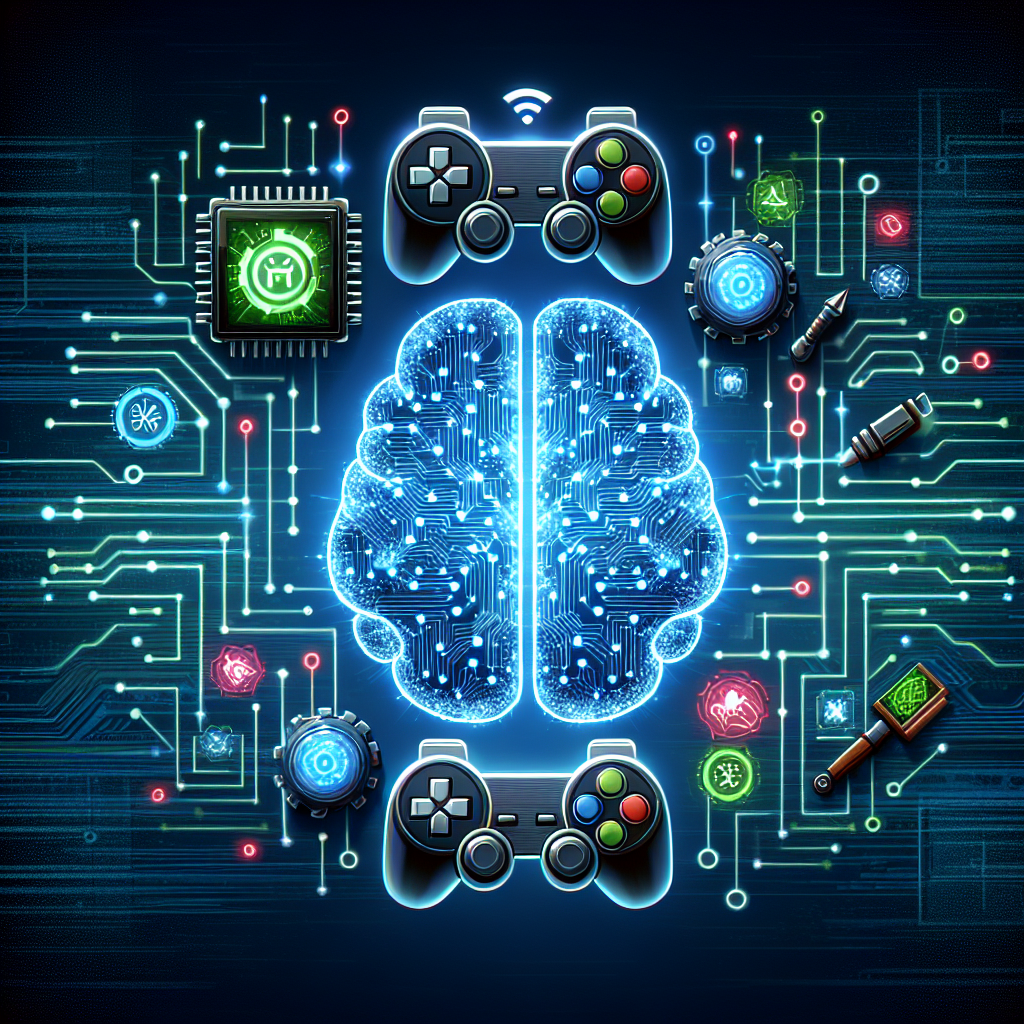Artificial Intelligence (AI) has been making significant advancements in various fields, and one area where it is having a profound impact is in the field of game development. Game AI behavior prediction is a crucial aspect of creating immersive and realistic gaming experiences, and AI technologies are being leveraged to enhance the capabilities of game AI systems.
In the past, game developers relied on scripted behaviors and rule-based systems to dictate the actions of non-player characters (NPCs) in games. However, these approaches often led to predictable and repetitive gameplay experiences. With the advancements in AI technologies, developers now have access to more sophisticated algorithms and techniques that enable NPCs to exhibit more complex and human-like behaviors.
One of the key technologies driving the evolution of game AI behavior prediction is machine learning. Machine learning algorithms can analyze large amounts of data to identify patterns and make predictions about future behaviors. In the context of game development, machine learning can be used to train AI models on player behavior data, enabling NPCs to adapt and respond dynamically to player actions.
Another important aspect of game AI behavior prediction is the use of reinforcement learning. Reinforcement learning is a type of machine learning where an AI agent learns to make decisions by interacting with its environment and receiving feedback in the form of rewards or punishments. By using reinforcement learning, developers can create AI systems that can learn and improve over time, leading to more challenging and engaging gameplay experiences.
One of the key challenges in game AI behavior prediction is balancing between creating challenging opponents and ensuring a fun and enjoyable gaming experience. AI systems that are too difficult can frustrate players, while those that are too easy can lead to boredom. Developers need to strike the right balance by fine-tuning the parameters of their AI models and incorporating mechanisms for dynamic difficulty adjustment.
Another challenge is ensuring that AI systems are able to adapt to the diverse play styles and preferences of different players. What works well for one player may not necessarily work for another, so developers need to create AI systems that can accommodate a wide range of player behaviors and strategies.
Despite these challenges, the future of game AI behavior prediction looks promising. As AI technologies continue to evolve and improve, we can expect to see even more realistic and sophisticated AI systems in games. These systems will be able to analyze and predict player behaviors with greater accuracy, leading to more immersive and dynamic gameplay experiences.
FAQs:
Q: How is AI being used in game development?
A: AI is being used in game development to enhance the capabilities of game AI systems, create more realistic and challenging opponents, and provide dynamic and adaptive gameplay experiences.
Q: What are some of the key technologies driving the evolution of game AI behavior prediction?
A: Machine learning and reinforcement learning are two key technologies driving the evolution of game AI behavior prediction. These technologies enable developers to create AI systems that can learn and adapt to player behaviors.
Q: What are some of the challenges in game AI behavior prediction?
A: Some of the challenges in game AI behavior prediction include balancing between creating challenging opponents and ensuring a fun gaming experience, adapting to diverse player behaviors, and fine-tuning AI models for optimal performance.
Q: What can we expect in the future of game AI behavior prediction?
A: In the future, we can expect to see even more realistic and sophisticated AI systems in games. These systems will be able to analyze and predict player behaviors with greater accuracy, leading to more immersive and dynamic gameplay experiences.

